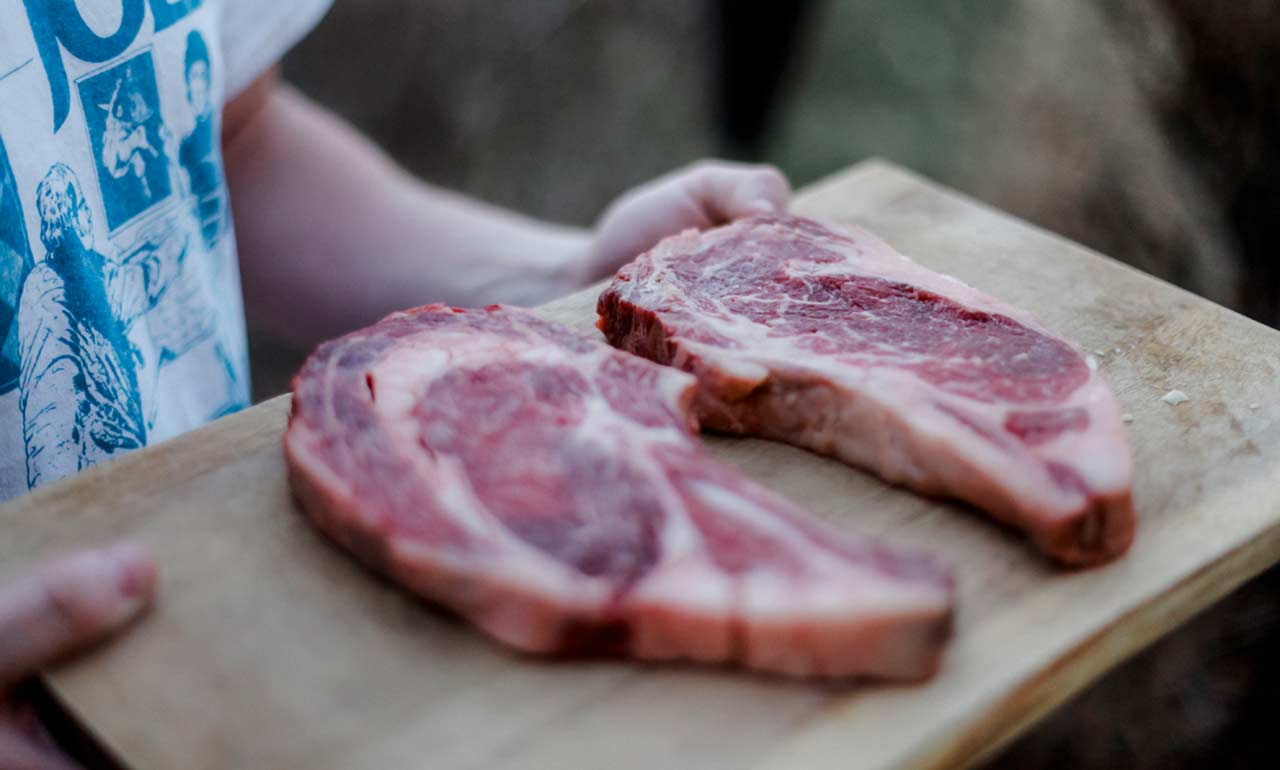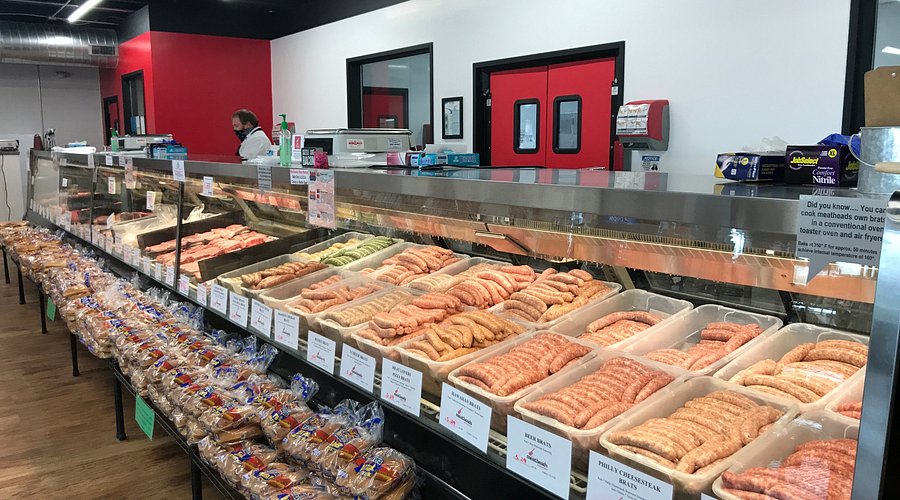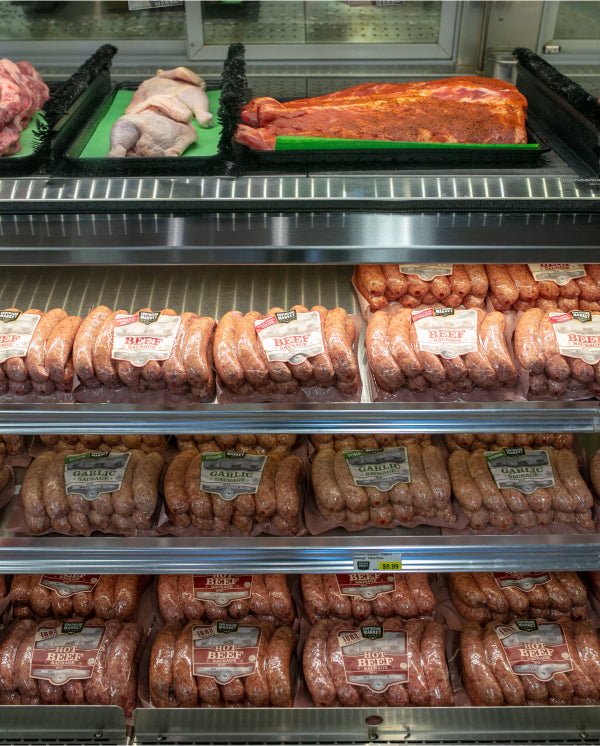Why Picking a Meat Market Over a Grocery Store Makes a Distinction in Preference and Quality
The difference between buying meat from a specialized market versus a supermarket frequently lies in the nuanced layers of preference and quality. Meat markets generally emphasize freshness, sourcing their items from neighborhood farms, which not only boosts flavor yet also promotes lasting practices. Moreover, the know-how of competent butchers can give important understandings right into picking the right cuts for different cooking applications, ensuring a more tailored experience. Nevertheless, the ramifications of these options prolong past plain taste; they elevate vital inquiries concerning the more comprehensive influence on consumer practices and local economic climates. What else might be at stake?

Quality of Products
Prioritizing quality is a considerable benefit of selecting a meat market over a supermarket. Meat markets typically supply products that are sourced in your area and processed with a concentrate on preserving optimum quality. Unlike supermarkets, where meat might be kept for extensive periods, meat markets usually get daily distributions, guaranteeing that their supply is regularly restored with high-grade cuts.
Additionally, meat markets generally have a much more reliable supply chain, minimizing the time from ranch to table. This rapid turn over not just enhances the taste and appearance of the meat yet also provides clients with guarantee concerning the top quality of the items they buy. The skilled butchers at meat markets can likewise give valuable insights right into the quality of their offerings, as they are totally aware of their providers and the problems under which the meat is taken care of.
Additionally, meat markets commonly prioritize entire cuts and specialized things that may not be available in supermarkets, enabling customers to discover a variety of options that are fresher and a lot more savory. This dedication to quality eventually adds to a superior culinary experience, making meat markets an attractive option for discerning consumers.
Sourcing and Sustainability
The dedication to top quality at meat markets expands past freshness to include sourcing and sustainability practices. Unlike big supermarkets, which frequently count on mass-produced products, meat markets focus on regional and honest sourcing. This technique not only supports neighborhood farmers and breeders yet additionally lowers the carbon impact related to transferring meat over long ranges.

Furthermore, meat markets commonly supply a variety of cuts and specialty meats that show the periods and neighborhood cooking practices. This commitment to sustainability fosters a link in between customers and their food resources, advertising openness regarding the origins of the meat they purchase. By picking meat markets, consumers can delight in not only enhanced flavors but also the fulfillment of supporting accountable and lasting agricultural methods.
Professional Knowledge and Suggestions
While purchasing at a meat market, consumers take advantage of the specialist expertise and customized recommendations used by experienced butchers. These specialists are commonly trained and possess comprehensive experience in the meat industry, allowing them to supply understandings that go far beyond the essentials located in a supermarket. They can direct customers on choosing the best cuts for specific dishes or events, guaranteeing optimal taste and tenderness.

In addition, butchers usually put in the time to involve with customers, responding to questions and sharing pointers that are not readily offered in a grocery store setup. This level of customized service promotes a deeper link in between clients and their food, ultimately elevating the total cooking experience. By selecting a meat market, consumers access to a riches of knowledge that can substantially affect their food preparation and enjoyment of meat.
Flavor Accounts and Range
When checking out the offerings at a meat market, clients are often rewarded with a varied array of flavor accounts and cuts that are typically unavailable in grocery stores. Unlike mass-produced meat items, which often prioritize harmony, meat markets curate their selections based on quality and regional uniqueness. This leads to a range of meats that show one-of-a-kind tastes, appearances, and prep work techniques.

Seasonal and in your area sourced choices better enhance the experience, as these items commonly possess superior quality and taste. The experienced butchers at meat markets can guide consumers on the finest cuts for details recipes, ensuring that each selection aligns with wanted flavor accounts and cooking strategies. Generally, the selection and top quality discovered in meat markets not only raise the cooking experience yet additionally motivate expedition and trial and error in home food preparation.
Supporting Neighborhood Economies
Selecting a meat market not just enhances cooking experiences with diverse taste profiles but also plays a considerable duty in supporting neighborhood economic climates (bagley meat market edwardsville il). They are more likely to engage with services that resource their items from regional ranches and producers when customers decide for meat markets over larger supermarket chains. This practice cultivates a lasting agricultural environment, urging farmers to maintain traditional methods that produce high-quality meats
Furthermore, pop over here meat markets generally use regional staff, which adds to task creation and retention within the neighborhood. The economic effect expands past the prompt business; cash invested go to this site at neighborhood facilities tends to circulate within the community, benefiting numerous markets such as marketing, retail, and transportation. This regional investment aids boost the total financial wellness of the area.
Additionally, meat markets commonly stress openness and ethical sourcing practices, which resonate with customers significantly worried regarding the beginnings of their food. By picking to patronize these facilities, clients not only appreciate exceptional products however additionally verify their dedication to supporting their community's economic climate. Basically, picking a meat market is a purposeful selection that nurtures both individual complete satisfaction and more comprehensive economic vigor.
Final Thought
Selecting a meat market over a supermarket significantly influences taste and quality. On the whole, the benefits of choosing a meat market expand past specific choices, influencing broader financial and ecological factors while elevating the art of cooking.
Unlike supermarkets, where meat may be kept for prolonged periods, meat markets commonly receive everyday deliveries, guaranteeing that their inventory is regularly replenished with top notch cuts.
The competent butchers at meat markets can additionally give important insights into the freshness of their offerings, as they are totally familiar with their vendors and the problems under which the meat is taken care of.
In addition, meat markets commonly provide a selection of cuts and specialty meats that reflect the periods and local cooking practices. By picking a meat market, consumers gain access to a riches of knowledge that can significantly impact sites their cooking and enjoyment of meat.
Unlike mass-produced meat items, which commonly prioritize uniformity, meat markets curate their selections based on top quality and regional uniqueness.